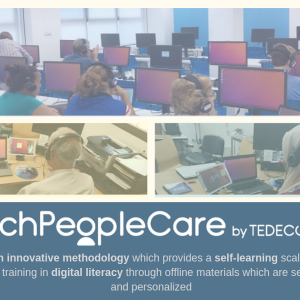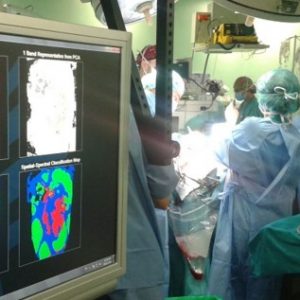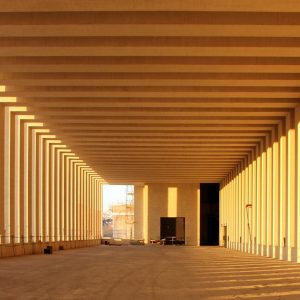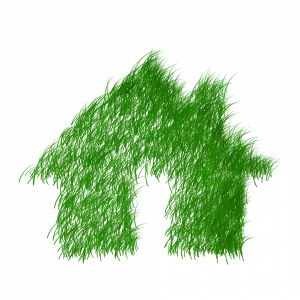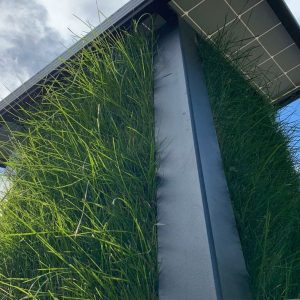Brief description of the solution and the added value it delivers
Researchers at Universidad Politécnica de Madrid(UPM) have developed and manufactured a new concept laminated material consisting of recycled textile agglomerate with a metal or polymer coating. The combination, positioning and precise orientation of those materials give rise to an end product with properties far superior to those of other traditional laminate materials, while also offering a responsible solution as regards recycling textile products.
TeksTeela is a versatile, lightweight, strong and highly durable material capable of absorbing a large quantity of water without being damaged, as well as an effective thermal and acoustic insulator. Its special design allows it to be adapted to the specific requirements of each industrial application and, in particular, to the construction of modular structures (flat and curved geometries) and the manufacture of personalised furniture.
Description of the technological basis
In many countries, there is a growing need to provide the population with cheap housing and furniture solutions, while at the same time maintaining decent conditions in terms of habitability and, as far as possible, reducing expenditure on thermal and acoustic insulation. Moreover, the expansion of the textile industry has led to a worldwide overproduction of fabrics of up to 64 million tonnes a year, creating a problem in terms of its management as a waste material.
TeksTeela is not only a laminate material that reuses textile products. It also offers an up to eightfold increase in impact resistance compared to other traditional solutions on the market, achieving that performance with low-cost, on-site, manufacturing in the place where the technology is implemented. It is also shown to be an effective heat and sound insulator for homes.
‘The combination of different materials provides TeksTeela with certain synergistic characteristics that make it viable, versatile and easy to manufacture’
Business needs / application
-
The search for new materials to satisfy ever more demanding design and structural requirements is a constant in the sector. The use of hybrid materials is a good alternative to traditional materials. TeksTeela is more impact resistant (up to eight times more than traditional materials and absorbing four times less water), allows for lighter structures, is easy and cheap to manufacture and is suitable for many different applications. It is also an effective thermal and acoustic insulator.
-
One promising area of application is the design of high-performance, versatile and lightweight furniture for homes around the world. Using TeksTeela for this purpose provides a solution that both reduces the percentage of textile waste and offers a material that can be personalised for any user.
Competitive advantages
-
A material designed to meet the most demanding needs for both modular structures and furniture.
-
It improves impact resistance at the same time as reducing the weight of the structure.
-
It absorbs less water than traditional materials such as wood, while also having high biological resistance and reducing the need for maintenance.
-
It offers a high level of thermal and acoustic resistance to structural vibrations and noise.
-
TeksTeela offers synergistic and versatile characteristics that can be personalised for any application.
References
-
The technology has been assessed by construction companies such as DIERULAN Soluciones Técnicas, which have praised the initiative and are willing to use the material in their future projects in countries such as Mexico and Spain.
-
UPM’s Industrial Design and Manufacturing Research Group has existed as a consolidated group for more than ten years and has carried out more than 50 projects and research contracts.
Stage of development
-
Concept
-
Research
-
Lab prototype
-
Industrial prototype
-
Production
Contact
TeksTeela contact
Cristina Alía García, Rosa Ocaña López
ETSIDI – UPM
e:
e:
UPM contact
Innovation and Entrepreneurship Programmes
Technological Innovation Support Centre (CAIT) – UPM
e:




